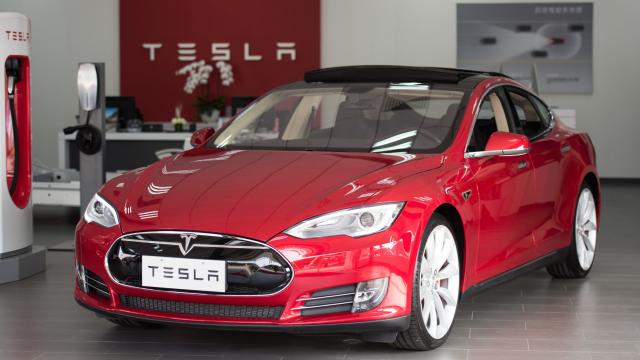Electric car giant Tesla has issued a recall for some 135,000 vehicles, according to the Wall Street Journal, due to failing touchscreen panels.
Under the terms of the recall, many owners of Model S sedans built from 2012 to 2018 and Model X SUVs built from 2015 to 2018 will be advised of the risk that the flash memory chips in their touchscreens could fail due. These 8GB NAND chips burned out much faster than expected, due to the expanded size of Tesla firmware and the need to process increasingly large volumes of data.
Reported issues that can arise from touch screen failure include the inability to defrost the car, turn signal issues, and loss of some functionality like audio cues and driver sensing in Tesla’s Autopilot system. The National Highway Traffic Safety Association (NHTSA) deemed the problem a safety risk and asked Tesla to recall the entire run of 158,000 vehicles. (Some 23,000 of the vehicles aren’t subject to the recall because they’ve already been upgraded.)
The flash memory issue has been mentioned in news reports dating back to May 2019 and, as Vice reported, Tesla fought hard against having to issue a recall at all, saying the problem didn’t amount to a manufacturing defect. The company insisted the glitches were ameliorated by a software patch that, in the event of flash memory failure, would set cabin temperature to 71.6 degrees, activate defogging and defrosting, turn on backup cams, and prioritise exterior lighting controls. In a Jan. 27 letter to the NHTSA, Tesla agreed to issue a “voluntary recall” but insisted the patch made the vehicles safe to operate until owners bring them in for repairs. In a letter acknowledging the recall on Jan. 1, the NHTSA specifically pointed out it doesn’t agree with Tesla’s assessment of the fried flash chips.
“We note that your report states that Tesla believes that this matter does not have a safety risk,” NHTSA Recall Management Division chief Alex Ansley wrote in the letter. “In our view, this statement has no force or effect in terms of Tesla’s obligation to undertake and complete the recall, and NHTSA does not agree with it.”
Under the terms of the recall, Tesla will replace the entire Visual Component Module on the affected vehicles with an upgraded version boasting 64 gigabytes of flash memory beginning on March 30, as well as reimburse any owners of affected Tesla models who already had those repairs conducted. Guidehouse Insights analyst Sam Abuelsamid told the Journal the cost to Tesla is likely to run between $US200 ($264) and $US250 ($330) million.
In 2018, Tesla issued a recall of 123,000 Model S sedans thanks to bolts that could corrode in frigid weather and cause loss of power steering. The company has also clashed with regulators over its Autopilot system, which the National Transportation Safety Board has blamed for a fatal 2018 crash in California and safety officials.
